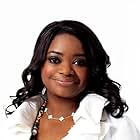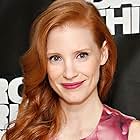I grew up in the 60's, the setting for The Help, a story of Southern prejudice and cruelty toward African Americans, who were chattel of the Southern rich treating their servants as expendable and marginal. I can say that as a Northerner with a black maid for our household, there was love but always a barrier, a carryover from the strict separation still prevailing after reconstruction.
Director Tate Taylor keeps the race relations taut but not strident, as if we were living through the emerging civil rights movement slowly but inevitably aimed at equality, not "separate but equal." Skeeter (Emma Stone) graduates, returns to Jackson, Miss., and decides to write about the black help, whose "perspective' needs to be told. As more maids join in the writing of the manuscript, the more possible it is to counter the assassination of Medgar Evers and eventually that of Martin Luther King.
While we have grown used to the base scatological humor of the Hangovers, Change-UP, and other rom-coms, the fundament motif in The Help is as low-key as will ever be depicted in film. Not only is the idea of the bad guys "eating s—t" effective, it is funny and poignant.
A note about the performances—Bryce Dallas Howard as the conservative, prejudiced Hilly, is remarkably successful, making her a full-fledged actress and not just a famous director's daughter. Jessica Chastain as the ditzy but big-hearted Celia Foote cements her place as a great modern actress following her memorable role as the compliant wife in Tree of Life. Emma Stone no longer need rely on rom-coms, for she stars in The Help with a performance nuanced and underplayed, just the way I like it, albeit a bit too hip for the times.
Although the film tends toward the simplistic, e.g., there are no bad blacks and most whites are obtuse, Viola Davis as maid Aibileen Clark successfully carries the film displaying the ambivalent nature of slavery ready to burst out of its chains.
















































